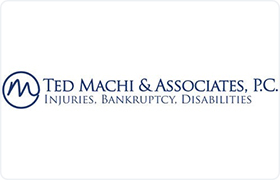Naval Air Station/ Jrb Bankruptcy & Debt Lawyer, Texas
Sponsored Law Firm
-
 x
x

Click For More Info:
-
Machi & Associates, P.C.
1521 North Cooper Street Suite 550 Arlington, TX 76011» view mapAccident & Injury, Bankruptcy, Social Secuirty We Fight So You Don't Have To
Our professional team of attorneys and staff provide the experience and expertise needed to effectively handle your case.
800-804-0771
Jason Brandt Stephens
✓ VERIFIEDCivil Rights, Insurance, Personal Injury, Consumer Bankruptcy, Mass Torts
Jason Stephens is an award-winning Texas trial attorney, and founder of Stephens Law Firm, PLLC. He’s logged countless hours in the courtroom and ha... (more)
Joe A. Gonzalez
Bankruptcy, Personal Injury, Criminal, Mass Torts, Consumer Bankruptcy
Joe A. Gonzalez is an experienced attorney and certified public accountant with over 10 years of legal experience. Joe practices in estate planning, b... (more)
Jerry L. Weinstein
Litigation, Bankruptcy, Commercial Real Estate, Wills
Status: Inactive Licensed: 51 Years
Robert Aaron Higgins
Social Security, Government, Bankruptcy, Bankruptcy & Debt
Status: In Good Standing
Kyle Blackborn Davis
Estate Planning, Bankruptcy, Construction, Elder Law, Personal Injury
Status: In Good Standing Licensed: 14 Years
Stephen Emery Geis
Oil & Gas, Business & Trade, Credit & Debt, Legal Malpractice
Status: In Good Standing Licensed: 47 Years
Laura N. Zachariah
Family Law, Criminal, Business & Trade, Consumer Bankruptcy
Status: In Good Standing
Michael Gary Engfer
Bankruptcy, Insurance, Criminal, Health Care, Consumer Bankruptcy
Status: In Good Standing Licensed: 13 Years
Michael G Engfer
Bankruptcy, Insurance, Criminal, Health Care, Consumer Bankruptcy
Status: In Good Standing Licensed: 13 Years
 Ted Machi Arlington, TX
Ted Machi Arlington, TX Practice AreasExpertise
Practice AreasExpertise



